Lukaszewski
on CRISIS COMMUNICATION:
WHAT YOUR CEO NEEDS TO KNOW ABOUT REPUTATION RISK AND CRISIS MANAGEMENT
by
James E. Lukaszewski
(loo-ka-SHEV-skee)
Kristen Noakes-Fry, Editor
ISBN 978-1-931332-57-6 (Perfect Bound)
ISBN 978-1-931332-66-8 (Hard Cover)
ISBN 978-1-931332-64-4 (PDF)
ISBN 978-1-931332-81-1 (EPUB)
Rothstein Associates Inc., Publisher
Brookfield, Connecticut USA
www.rothstein.com
COPYRIGHT 2013, James E. Lukaszewski
All Rights Reserved. No part of this publication may be reproduced, stored in a retrieval system, or transmitted in any form by any means, electronic, mechanical, photocopying, recording or otherwise, without express, prior permission of the Publisher.
No responsibility is assumed by the Publisher or Authors for any injury and/or damage to persons or property as a matter of product liability, negligence or otherwise, or from any use or operation of any methods, products, instructions or ideas contained in the material herein.
ISBN 978-1-931332-57-6 (Perfect Bound)
ISBN 978-1-931332-66-8 (Hard Cover)
ISBN 978-1-931332-64-4 (PDF)
ISBN 978-1-931332-81-1 (EPUB)
Library of Congress Control Number
2012953013
PUBLISHER:
Philip Jan Rothstein, FBCI
Rothstein Associates Inc.
The Rothstein Catalog on Disaster Recovery
4 Arapaho Rd.
Brookfield, Connecticut 06804-3104 USA
203.740.7444 203.740.7401 fax
www.rothstein.com
Keep informed of the latest crisis communication, crisis management and business continuity news.
Sign up for Business SurvivalWeblog: Business Continuity for Key Decision-Makers from Rothstein Associates at www.rothstein.com/blog
Dedication
Chester A. Burger
1921-2011
A Special Dedication to Chester A. Burger: Goodbye, Chet.
The Remembrance of a Remarkable Man appears later in this book.
Acknowledgments
I would like to thank Philip Jan Rothstein, FBCI, my publisher, and Kristen Noakes-Fry, my editor. Their patience, perseverance, prodding, and occasional provoking are what brought this book into the world.
Preface
A Word with Your Boss, Please...
I f I could speak to the chief executive of your company or organization about the importance of communications in your preparation for crisis or emergency, we would discuss just a few career preserving subjects, and the conversation would take only a few minutes. In short, we would discuss:
How responding quickly in the first 60-120 minutes of an emergency or disaster can save assets, markets, and reputations and avoid or delay career-defining moments, his or hers.
How managing victims immediately, humanely, with compassion will de-escalate the visibility that poorly handled victims always causes.
The reputational toxicity of silence.
How well-handled and perfectly managed crises that are poorly communicated will always be remembered as poorly handled crises.
If you fail to manage your own destiny from the start, there is always someone out there waiting and willing to do it for you.
Speed beats smart every time. Waiting to execute the perfect response will cost you your reputation, and likely your job, and you will still fail.
Bad news always ripens badly. Bad news brings bad stories. Mistakes will be made and the media will make things up. Fifty percent of your energy and 25% of your resources will go to fixing yesterdays mistakes, yours and the medias.
Effective crisis communication involves simple, sensible, sincere, constructive, positive, and ethical approaches applied from the start.
How to overcome the abusive, intrusive, and coercive behavior of new media bloviators, bellyachers, back-bench bitchers, activists, and critics (and the media).
The unplanned visibility that a crisis creates builds expectations of your honorable behavior among your most critical audiences and stakeholders including your own employees, the community, the government, and the victims. Are you ready?
Managing this unplanned visibility, combined with a real sense of unconventional wisdom, is precisely what this book is about. Most managers and leaders consider themselves to be truly excellent communicators. This book will help you move these critical people, as well as your constituencies, to new levels of understanding and more prompt response when crisis strikes. This book is about going beyond the conventional wisdom. Its about doing things that matter, now. When you get what there is to do and say, done and said during that first golden hour of response opportunity, the victims will thank you and the media will leave you alone.
James E. Lukaszewski
Bloomington, Minnesota, USA
January, 2013
Foreword
The Pragmatist
I first met Jim Lukaszewski at a lecture more than 20 years ago, at a Public Relations Society of America (PRSA) national event. I was then setting up a Crisis Communications Group for a national PR firm, Ruder Finn, and thought Id find out what I could learn from someone who was already a recognized expert in the field of crisis communications. We never metagain, in person. But we started to become email buddies in 1994, after I launched my own consultancy and an email newsletter, Crisis Manager. I still recall Jim periodically sending me kindly worded missives, critiquing some of the ideas I espoused in my newsletter. Eventually, he agreed to become one of my guest authors.
The industry has come a long way since Jim and I had to explain what we meant by crisis management. History made our job easier and more essential, following the explosion of Internet-centered communication from the early 1990s onward, covering crises ranging from Brookstone-Firestones killer tires, to the demise of Enron and Arthur Andersen, to 9/11 and Katrina. Along the way, these incidents were complicated by from the scene reporting at every major natural and man-made disaster by individuals whose only claim to journalism talent was ownership of a portable device capable of recording and sending photos and video.
One of the things that makes Jims new book unique, even in a field that itself is still relatively unique, is Jims practical instruction on the intelligent and sensitive treatment of victims, which can lessen negative publicity for an organization in crisis and its brand, shorten the period of time the crisis remains in the public eye, and reduce the severity of any legal repercussions arising from the crisis. Jim also tells how to cope with the awesome power of the emergence of the citizen journalist Internet-connected device-owning people able to report what they consider to be important news the moment it happens, 24/7.
And Jim, also, has been in the trenches battling crisis fires side by side with the lawyers, who sometimes, if you dont know how to work with them constructively, can actually make the crisis worse by focusing on courts of law versus courts of public opinion. The latter, as Jim explains, is what puts you out of business the fastest!
In this book, you will:
 have information on hand that, in my opinion, is worth hundreds of thousands of dollars, because it reflects the accumulated, multi-decade insights of one of the worlds leading crisis communicators;
have information on hand that, in my opinion, is worth hundreds of thousands of dollars, because it reflects the accumulated, multi-decade insights of one of the worlds leading crisis communicators;



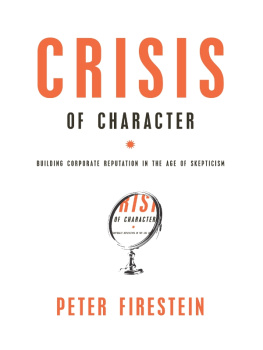
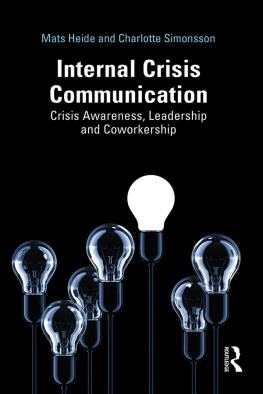


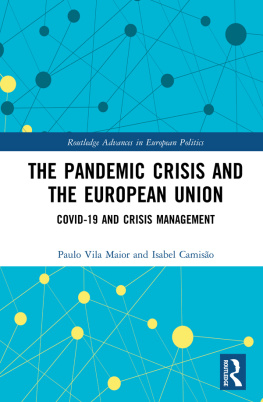
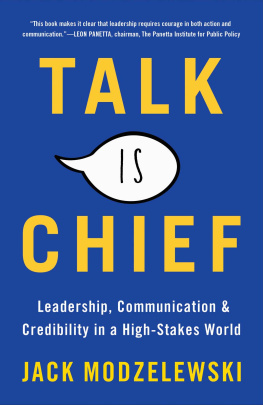
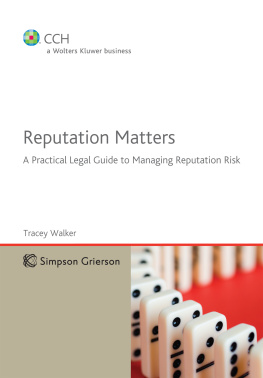
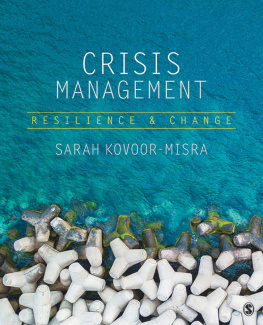


 have information on hand that, in my opinion, is worth hundreds of thousands of dollars, because it reflects the accumulated, multi-decade insights of one of the worlds leading crisis communicators;
have information on hand that, in my opinion, is worth hundreds of thousands of dollars, because it reflects the accumulated, multi-decade insights of one of the worlds leading crisis communicators;